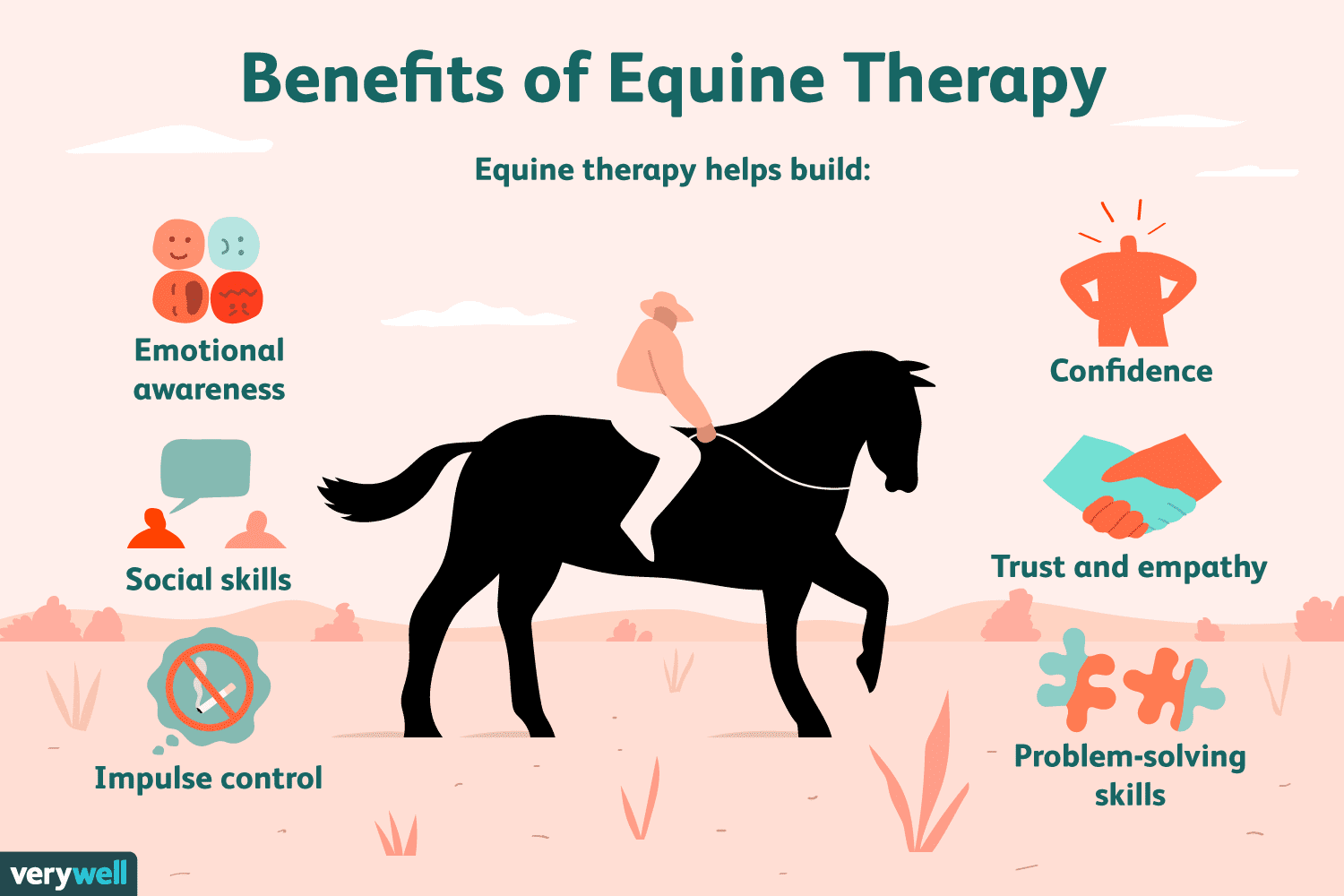Equine therapy, often referred to as horse therapy or equine-assisted therapy, has emerged as a multidimensional approach to mental health and emotional well-being. This innovative form of therapy utilizes the bond between humans and horses to facilitate personal growth, emotional healing, and social skills development. As the fields of psychology and animal-assisted therapy intertwine more intricately, a plethora of benefits associated with equine therapy becomes apparent. This article delves into these advantages, illustrating how equine therapy effectively addresses various psychological and emotional challenges. Furthermore, it highlights the distinctive components and settings that enhance its therapeutic efficacy.
Exploring the Therapeutic Mechanisms of Equine Interaction
The foundation of equine therapy lies in the profound interpersonal dynamics established between the therapist, the patient, and the horse. This unique triad creates a safe space where individuals can confront emotional barriers and develop coping strategies. The act of grooming, riding, or merely interacting with the horse diminishes anxiety and fosters a sense of trust and cooperation. As patients engage with the horse, they learn to interpret nonverbal cues. Horses, being exquisitely sensitive creatures, mirror human emotions, often reflecting the emotional state of their human companions. This mirroring can be catalytically transformative, fostering self-awareness and emotional regulation.
The process of building rapport with a horse encourages individuals to embrace vulnerability, thereby facilitating personal insight and growth. Unlike traditional therapeutic environments, where verbal communication predominates, equine therapy encourages experiential learning. Participants often discover that their connection with the horse can provide insights into their interpersonal relationships and self-perceptions in ways that verbal dialogue cannot. This non-verbal, kinesthetic learning process activates emotional and cognitive pathways that are particularly beneficial for those who may struggle with conventional dialogue-based therapies.
Nurturing Emotional Resilience Through Equine Connections
Equine therapy is particularly effective in promoting emotional resilience—a critical component in managing mental health challenges such as anxiety and depression. The innate calmness and compassion exhibited by horses create an environment conducive to emotional exploration. As patients navigate their therapeutic interactions, they cultivate resilience through the challenges posed by horses, such as maintaining balance while riding or learning to effectively communicate with the animal. These experiences parallel life challenges, fostering a robust coping mechanism that extends beyond the therapy session.
Moreover, the unconditional presence of horses offers therapeutic benefits that can significantly mitigate stress levels. The simple act of petting a horse has been shown to reduce cortisol (the stress hormone) while simultaneously increasing serotonin and dopamine levels—neurochemicals that promote feelings of well-being and happiness. The rhythmic movement of a horse and the tranquility associated with being in their presence establish a serene experience that soothes the mind, effectively combating symptoms related to anxiety and depression.
Building Social Skills and Enhancing Cooperative Play
In addition to individual emotional benefits, equine therapy serves as a vital conduit for improving social skills and fostering community among participants. Group therapy settings often incorporate equine activities that necessitate collaboration and teamwork. Patients learn to communicate effectively, resolve conflicts, and share responsibilities, deeply enhancing their social competencies. These group dynamics simulate real-world scenarios, providing individuals with the opportunity to practice their interpersonal skills in a supportive environment.
Individuals with Autism Spectrum Disorder (ASD) or Attention Deficit Hyperactivity Disorder (ADHD) particularly benefit from the social dimension of equine therapy. Research indicates that interactions with horses can improve focus, encourage social interaction, and enhance emotional understanding for individuals on the spectrum. The structured nature of equine therapy sessions provides clear expectations and boundaries, creating a conducive atmosphere for social learning.
The Role of Physical Engagement in Emotional and Cognitive Development
Equine therapy uniquely integrates physical and cognitive elements, cultivating a holistic therapeutic experience. The physical engagement involved in caring for horses—feeding, grooming, and riding—stimulates physical fitness and increases coordination. This kinesthetic aspect enhances motor skills and body awareness, crucial for personal development, especially in children and adolescents.
Furthermore, the cognitive benefits of equine therapy should not be overlooked. The process of learning to lead, ride, or train a horse requires critical thinking, problem-solving, and the ability to make immediate decisions. As individuals navigate the nuances of working with a horse, they enhance their cognitive flexibility and resilience—skills that are transferable to various life contexts, such as academic settings and personal relationships.
Reflections on Inclusivity and Diverse Applications
Equine therapy transcends traditional boundaries, appealing to diverse populations across varying demographics. Its versatile nature allows it to be adapted for a myriad of psychological issues—from anxiety and PTSD to depression and grief. The therapeutic process is inclusive, often welcoming individuals from different socio-economic backgrounds and age groups. Special populations, including veterans and survivors of trauma, have found solace and healing through equine interactions, showcasing the universal appeal of this therapy.
Moreover, equine therapy can be integrated into various therapeutic frameworks, such as cognitive-behavioral therapy (CBT) and dialectical behavior therapy (DBT). Incorporating horses into existing therapeutic modalities enriches the therapeutic experience, enabling practitioners to offer a multifaceted approach tailored to individual needs. Such inclusivity ensures that equine therapy remains relevant and effective in an ever-evolving landscape of mental health practices.
Concluding Thoughts: Embracing the Power of Equine Therapy
The multifaceted benefits of equine therapy illustrate its potential as a transformative tool in mental health care. By harnessing the intricate relationship between humans and horses, this therapeutic approach fosters emotional healing, cultivates resilience, enhances social skills, and stimulates cognitive development. From the serene companionship of a horse to the collaborative dynamics in group therapy, equine interactions serve as powerful catalysts for personal growth and emotional empowerment.
Ultimately, the journey of equine therapy is one of discovery—not only of oneself but also of the profound connection shared with a sentient being. As mental health practitioners continue to embrace and promote the therapeutic potential inherent in human-horse relationships, the implications for transforming lives and fostering healing are both profound and far-reaching.
